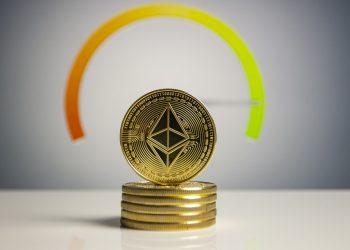Bitcoin remains the undisputed pioneer of the cryptocurrency world, but it is no longer the only option for investors and enthusiasts. As the crypto ecosystem evolves, altcoins—a term used for all cryptocurrencies other than Bitcoin—have gained prominence, offering unique features, innovative technologies, and specialized use cases. Understanding the key differences between Bitcoin and altcoins is essential for anyone navigating the crypto space in 2024. This article explores the distinctions between these two categories and examines why they matter to investors, developers, and users alike.
Table of Contents
- Introduction: The Rise of Bitcoin and Altcoins
- What is Bitcoin?
- What are Altcoins?
- Key Differences Between Bitcoin and Altcoins
- Purpose and Functionality
- Technology and Innovation
- Consensus Mechanisms
- Speed and Scalability
- Market Capitalization and Adoption
- Development Teams and Community Support
- Use Cases of Bitcoin vs Altcoins
- Altcoin Categories: From Stablecoins to Privacy Coins
- Investing in Bitcoin vs Altcoins: Risk and Reward
- Regulatory Challenges and Adoption
- Why You Should Care About Altcoins and Bitcoin in 2024
- Conclusion: Finding the Right Balance Between Bitcoin and Altcoins
1. Introduction: The Rise of Bitcoin and Altcoins
Bitcoin, created in 2009 by the pseudonymous Satoshi Nakamoto, introduced the world to a new form of decentralized currency. As Bitcoin’s popularity grew, developers began exploring ways to improve or expand upon its core technology. This led to the emergence of altcoins—cryptocurrencies designed to address Bitcoin’s limitations, offer new functionalities, or serve specific purposes. Today, there are thousands of altcoins, each competing with Bitcoin in various niches, such as decentralized finance (DeFi), smart contracts, and payment systems.
In 2024, the competition between Bitcoin and altcoins has intensified, making it crucial for investors to understand how these digital assets differ and complement each other.
2. What is Bitcoin?
Bitcoin (BTC) is the first and most valuable cryptocurrency, often referred to as “digital gold.” It was designed to be a peer-to-peer electronic cash system that operates without central authorities like banks or governments. Bitcoin’s core principles include:
- Limited Supply: Bitcoin’s total supply is capped at 21 million coins, making it deflationary.
- Decentralization: Transactions are verified by a global network of nodes, ensuring security and censorship resistance.
- Store of Value: Many view Bitcoin as a hedge against inflation, similar to gold, due to its scarcity and secure blockchain technology.
Bitcoin’s primary focus is on preserving value and enabling secure transactions without requiring intermediaries.
3. What are Altcoins?
Altcoins are all cryptocurrencies other than Bitcoin. While some altcoins are forks of Bitcoin’s original code (like Litecoin), others are completely new innovations with unique technologies. Altcoins aim to solve various issues in the crypto ecosystem, from transaction speed and scalability to privacy and smart contract capabilities. Some notable examples of altcoins include:
- Ethereum (ETH): Focuses on smart contracts and decentralized applications (dApps).
- Ripple (XRP): Aims to facilitate fast cross-border payments.
- Cardano (ADA): Prioritizes scalability and sustainability in blockchain development.
- Tether (USDT): A stablecoin pegged to the value of the US dollar.
Altcoins can serve a wide range of purposes, including governance in decentralized protocols, powering DeFi platforms, or acting as stable mediums of exchange.
4. Key Differences Between Bitcoin and Altcoins
Though Bitcoin and altcoins share common roots in blockchain technology, they diverge significantly in terms of functionality, technology, and market position. Let’s explore these differences in detail.
A. Purpose and Functionality
- Bitcoin: Primarily functions as a store of value and a medium of exchange. Its design focuses on security and decentralization, making it less flexible for other use cases.
- Altcoins: Altcoins often have more diverse functionalities, such as supporting smart contracts, enabling governance voting, or participating in DeFi. For instance, Ethereum powers thousands of decentralized applications, while XRP is optimized for fast, low-cost payments.
B. Technology and Innovation
- Bitcoin: Bitcoin’s technology prioritizes security and simplicity, with limited updates to its core protocol.
- Altcoins: Many altcoins introduce new technologies to address Bitcoin’s limitations. Ethereum brought smart contracts to the blockchain world, while newer projects like Solana focus on high-speed transactions. Altcoins often experiment with innovative consensus algorithms and privacy-enhancing features.
C. Consensus Mechanisms
- Bitcoin: Uses Proof of Work (PoW), which requires miners to solve complex mathematical problems to validate transactions.
- Altcoins: Many altcoins have adopted alternative consensus mechanisms, such as Proof of Stake (PoS) (used by Ethereum 2.0), which is more energy-efficient and scalable. Others, like Algorand and Polkadot, utilize hybrid consensus mechanisms for enhanced performance.
D. Speed and Scalability
- Bitcoin: Bitcoin’s block time is 10 minutes, and its network can handle around 7 transactions per second. This makes it relatively slow compared to modern standards.
- Altcoins: Many altcoins are optimized for faster transaction speeds and higher throughput. For example, Solana can handle up to 65,000 transactions per second, making it suitable for high-volume applications.
E. Market Capitalization and Adoption
- Bitcoin: As the first cryptocurrency, Bitcoin enjoys the largest market capitalization and is widely accepted across exchanges, businesses, and payment processors.
- Altcoins: While some altcoins, such as Ethereum, have significant market caps and adoption, most altcoins are more volatile and face challenges gaining mainstream acceptance.
F. Development Teams and Community Support
- Bitcoin: Bitcoin’s development is managed by an open-source community, with no central authority controlling it.
- Altcoins: Some altcoins, like Ethereum, also follow decentralized governance models. However, many altcoins are created by companies or foundations that influence the direction of development, such as Ripple Labs behind XRP.
5. Use Cases of Bitcoin vs Altcoins
Bitcoin is often referred to as digital gold because of its role as a store of value. Its main use case is long-term holding or serving as a hedge against inflation. It is also used for peer-to-peer payments in certain cases, although its transaction fees can be high during periods of network congestion.
In contrast, altcoins have wider and more diverse use cases. For example:
- Ethereum (ETH): Powers DeFi platforms, NFTs, and smart contracts.
- Litecoin (LTC): Designed for fast, low-cost payments, often called the “silver to Bitcoin’s gold.”
- Chainlink (LINK): Provides decentralized oracles for smart contracts.
- Tether (USDT): Used as a stable medium of exchange within crypto markets.
6. Altcoin Categories: From Stablecoins to Privacy Coins
Altcoins can be grouped into several categories based on their functionality:
- Stablecoins: Cryptocurrencies like USDT or USDC, whose value is pegged to a stable asset, such as the US dollar.
- Privacy Coins: Altcoins like Monero (XMR) and Zcash (ZEC) that focus on private, anonymous transactions.
- Governance Tokens: These tokens, such as Uniswap’s UNI, grant holders voting rights over protocol decisions.
- DeFi Tokens: Power decentralized finance platforms by enabling lending, borrowing, and staking.
7. Investing in Bitcoin vs Altcoins: Risk and Reward
Bitcoin is often viewed as a lower-risk investment due to its established market position and wide adoption. Many investors hold Bitcoin as part of a long-term portfolio strategy, given its track record as a store of value.
Altcoins, however, offer higher risk but greater potential rewards. Some altcoins have delivered exponential returns to early investors, but many also experience extreme volatility and face higher risks of failure. Altcoins with strong development teams and real-world use cases are more likely to succeed, but investors must carefully evaluate each project.
8. Regulatory Challenges and Adoption
Bitcoin enjoys relatively broad acceptance among regulators and institutions, and it has been recognized as legal tender in countries like El Salvador. In contrast, altcoins face regulatory uncertainties, with some being classified as securities, which could restrict their use in certain jurisdictions. Governments are also tightening regulations around privacy coins due to their association with illicit activities.
9. Why You Should Care About Altcoins and Bitcoin in 2024
In 2024, the distinction between Bitcoin and altcoins is more relevant than ever. Bitcoin continues to dominate as a store of value, but altcoins are driving innovation across blockchain ecosystems. Altcoins introduce new use cases, from smart contracts and DeFi to NFTs and cross-border payments, shaping the future of finance and technology.
Understanding the differences between Bitcoin and altcoins allows investors and users to diversify portfolios, participate in emerging technologies, and leverage unique opportunities offered by each type of cryptocurrency. As the crypto landscape evolves, staying informed about both Bitcoin and altcoins will be crucial for anyone engaging with digital assets.
10. Conclusion: Finding the Right Balance Between Bitcoin and Altcoins
Both Bitcoin and altcoins play vital roles in the cryptocurrency ecosystem, each serving different purposes. While Bitcoin provides stability and security as a store of value, altcoins push the boundaries of what blockchain technology can achieve. In 2024, savvy investors and users recognize the importance of balancing Bitcoin’s reliability with the growth potential of altcoins.
Whether you’re an investor looking to diversify or a user exploring new blockchain applications, understanding the strengths and limitations of both Bitcoin and altcoins will help you make better decisions in this dynamic and fast-changing space.
























